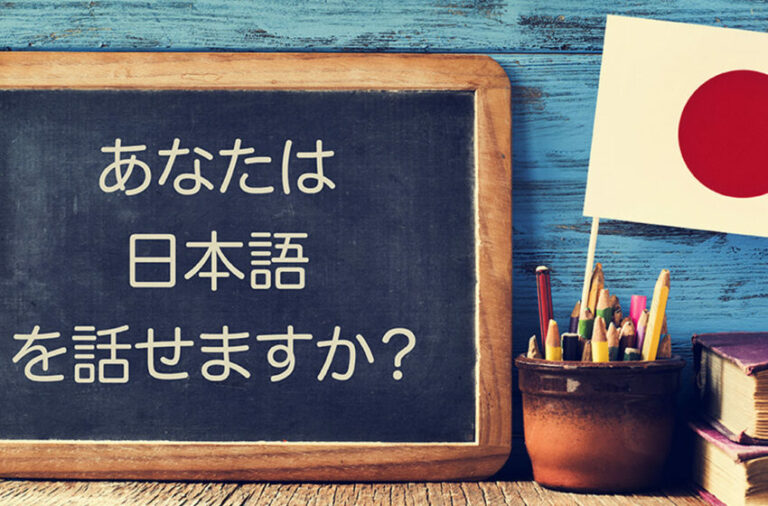
The most necessary component to thriving in a foreign country is possessing good language skills. Japanese gets much fanfare for being a particularly difficult language, especially for English speakers. However, mastery of a language is all about consistency and the elimination of bad habits. Today we’re going to go through a few tips that will remind you of what mistakes you might be making while living in Japan that are negatively affecting progression in your new language.
Listening to Your Native Language Too Much
Nobody remembers learning their native language. As a baby, you start with an incomplete brain and no long-term memory, and yet within two years you have learned a new language. How does this occur? Well, because babies can’t speak, they spend all of their time listening. They hear Mom and Dad talking all day, the TV running, etc., so they begin to mimic the sounds they hear to the best of their abilities and iron out the kinks later.
As an adult, this process is still important to us. The less you hear Japanese, the slower you will improve. It’s tempting to simply load up a podcast on YouTube and listen to your native language as you jog, do the dishes, etc. Listening to another language requires your brain to always be working, which can be exhausting after a long day at work. To add to that, listening to foreign speech for hours on end can feel like boring white noise because of your inability to understand it.
However, when supplemented with immersion, studying and speaking practice, constant listening will facilitate your improvement little by little and unravel bad habits. The breakthrough of understanding a full sentence during passive listening is one of the joys of learning a new language anyway.

Staying Indoors
The summer months in Japan can be absolutely brutal. If you’ve never lived in a place with a lot of humidity, it’s tough to get used to the horrible sticky feeling that follows you like a specter in temperate climates. If your first inclination, once the temperature rises, is to stay indoors as much as you can, you may be inhibiting your Japanese practice.
When you’re indoors, the option to only speak in and listen to your native language is always there. You could use that time to study, sure, but only when you force yourself to go outside will you be fully immersed in another culture. Language skills are never developed alone.
If nothing else, smoldering weather makes, fittingly, for a good ice-breaker! The first full conversation I ever had with a native speaker (face to face) was with an elderly gentleman hitching up his bike just outside my post office. It was simple small-talk; a ping-pong game of irrefutable meteorological observations, but it was nonetheless exhilarating as a learning experience. If I had just stayed inside and fulfilled my instinctual bad habits to play Minecraft and Tekken in my air-conditioned pad, I would have missed out on that great memory.
Gravitating Around Other Expats
Yet another pitfall for continued Japanese practice is surrounding yourself with people who speak your native language. This is especially easy to do in Japan as an English speaker, since there are so many expats from countries like the USA and UK. As comfortable as it is to get sucked into this kind of friend group, it must be minimized where possible. At the very least, you will help yourself by conversing with native Japanese speakers to the same extent that you are to native English speakers.
If nothing else, encourage your English-speaking friends to converse in Japanese instead. It may be an awkward, embarrassing and tiresome experience at first, but once it clicks it’ll be enlightening to everyone involved. Plus, I find it’s actually easier to talk to somebody with a similarly limited vocabulary since you’ll likely possess most of their lexicon.

Shyness
This fact, while obvious on paper, can’t be repeated enough: If you don’t interact with people, you’ll never learn a new language. As nerve-wracking as it can be, it’s essential to talk to as many people as you can if you want to buildup your language skills.
Brass tacks, there’s no questioning the fact that starting conversations with new people in anything, even your native language, is nerve-wracking. Many of you may struggle with conditions that make socializing even more difficult than the average person. Socialization, however, is an essential skill in life.
So, think of talking to strangers in Japan as killing two birds with one stone: Even if you fail to get any good Japanese practice in, at least you’re taking one step closer to being more sociable. If you have the opportunity, strike up a conversation! You will make mistakes and embarrass yourself, because that is, invariably, the path to no longer making those mistakes.
In my experience, younger Japanese people (in their 20s, e.g.) are less chatty than the elderly. Also, as is the case in any country, people in the city are less friendly than people in the countryside. If you have trouble talking to people in the big city, going to a small town might yield better results for your language skills. Diving into some obscure corner of Japan can be a superior alternative to whatever rabbit path you may have inadvertently run for yourself.
For the sake of driving my point through, I’d like to relay an example from personal experience if you’ll indulge me: I once visited a tucked-away Kaisendon shop in Yokkaichi (Mie prefecture). Yokkaichi, no offense if you live there, is not the nicest area of Japan, but I took a gamble on the great looking eateries. When my wife and I walked into that establishment, every pair of eyes in the building looked at us. It was tempting to 180 out, but I stood there defiantly until a waitress ushered us into a crowded corner of the dining area—no bigger than my apartment, and because the establishment was full, we were seated at the same table as a few rowdy guys who were drinking at 3pm. As it turns out, they had offered their table specifically to share.
Perhaps the alcohol had lubricated them socially, because they started talking to us and showing off all the different self-service stations at the restaurant, as well as explaining aspects of the meal we ordered blindly. They joked and poked fun at us, but were warm in spirit and loved using the handful of English words they were aware of to their breaking point. Laughs and advice and opinions were swapped around, and we left that initially uncomfortable situation feeling not like outsiders or others, but like members of a family. Perhaps most pertinent to this article, I learned at least a dozen new words, and because of my experience I will never forget them.
Even if it’s not in your blood to enter into such a situation, your new language demands that you continuously work up the courage to kill your bad habits. Ultimately, you have everything to lose and nothing to gain by staying in your bubble, and yet you have everything to gain and nothing to lose by leaving it. Pop the bubble.














